For the week...
FN30_____________________________________
FN 4.0 -------->>>> -0-30 to 98-11 from 99-09
FN 4.5 -------->>>> -0-25 to 100-05 from 100-30
FN 5.0 -------->>>> -0-10 to 101-22 from 102-00
FN 5.5 -------->>>> -0-03 to 102-13 from 102-16
FN 6.0 -------->>>> +0-06 to 103-09 from 103-03
For an update on how rate sheets and mortgage rates changed this week...read the Mortgage Rate Watch Blog <--link
Hello everyone....say hi to Matt.
Hi Everyone! It's Matt!
Another week has past in the temporal creation of the new financial world order, as has been and will be the case, it was eventful in most ways and boring in others. The theme again this week was balancing the Flight-To-Quality buying urges created by economic uncertainty against the deluge of treasury supply (a record week). But treasury prices do not dictate mortgage rates you say? Of course you're right, but of all the factors exerting influence on MBS this week, treasury pricing stood out the most.
This week saw the reintroduction of the long-absent 7 year note to treasury's arsenal of issuances ever-expanding to meet the funding needs of quantitative easing and nutritional requirements of Uncle Sams well-used "bailing arms." Though there were no longer term auctions this week, we did have a record amount of "middle of the road" supply in the form of 2's, 5's, and the aforementioned 7's. Taking the situation at face value, treasuries actually performed better than some might have expected in the sense that yields did not back up quite as aggressively as the massive supply would seem to suggest. Pundits who have been shouting "Asia hates our money!" from the rooftops are mysteriously away from their feedback boxes as the indirect bids were much higher than recent auctions suggesting that the rest of the world (which usually means "Asia") is finding their FTQ solace in treasuries still, despite what doomsday prophets might scare you into believing.
All this added up to a gradual "leak out" of treasury prices as opposed to massive sell-off that many viewed as a potential outcome. Though MBS prices ended down on the week, from a spread perspective, the mortgage market could not have been happier. We've talked many times recently about treasury selling being a prime environment for MBS to close the spread gap to treasuries, and this week was no exception. As treasuries saw their brief rallies this week, MBS rallied less, but as Treasuries saw predominantly periods of selling this week, MBS sold considerable less, to a point where many marveled at their endurance. Want to understand this in more simple terms? Where was the 10 year note a few weeks ago? Around 2%? And where is it today? Just over 3%? The point of all this "spread tightening" nonsense is that mortgage rates have certainly NOT risen nearly that much over the past few weeks. And in some cases, owing to the other factors (such as primary/secondary spreads) driving mortgage rates these days, they are actually better.
Treasuries' delicate balancing act between an FTQ bid generated by increasingly catastrophic economic news and overwhelming supply created by bailout funding requirements will certainly continue in the near term. This will keep upward pressure on treasury rates and mortgage rates alike. But just as mortgages performed much better COMPARED to treasuries, they will continue to do so in future sell-offs. As long as the amount by which they tighten during these periods of selling exceeds the amount by which they widen during treasury rallies, another key ingredient remains ripe for mortgage rate promised land. So far, this has been the case. And with spreads to treasuries STILL much wider than the historic mean, this is more likely than not. In simple terms this means that treasuries HAVE ROOM to increase in rate a bit and STILL allow mortgage rates to drop. And although, during buying spells, treasuries may continue to improve at a faster pace than MBS, the ground that MBS can close during sell-offs will create an advantageous enough starting point before rallies that what seems like an insulting low gain will leave MBS in great shape. Expect this dynamic to continue as long as treasury oversupply is concern.
But what of dark clouds on the horizon? We see a few. Though they are not certain to destroy our hopes, they may at least prove to be a wrench in our beautiful machine. There was tons of negative housing news this week. New home sales fell to an annual rate of 309k, and the median price down an annual rate of 13.5%. Despite a call for a 1.1% increase, existing home sales declined 5.3%. Supply remains elevated at 9.6 months and was unable to continue a decreasing trend from December's reading of 9.4. These are awfully awful numbers folks. Some solace can be taken from the economic climate in that many homebuyers, according to the National Association of Realtor's chief economist, may be waiting for more details on the stimulus bill and an $8000 first time home buyer tax credit. Combine that with the continued cheapening of homes and mortgage rates, and many believe the stage is being set for a definitive rally in these indicators. Still, although these numbers don't generally impact MBS directly, when they are this bad, it can create concerns that the economy is SO BAD, that even MBS is not safe enough and treasuries win the FTQ challenge. We wouldn't read too much into that concept at the moment, but it may play a small role.
Slightly higher on the scale of concern would be the price indexes. For example, The FHFA reported record declines in its purchase price index of 3.41% monthly and 13.6% annually compared to 1.99%/7.96% just one quarter ago. Additionally, the highly regarded Case/Shiller indexes were down 18.5% on the 20 city and 19.2% on the 10 city, both records. Decembers price decreases were slightly worse than Novembers. Again, home price indexes are not the kind of reports that normally have much impact on MBS prices, and that is the case still. However, when things are this bad, we can't rule out a slight impact to MBS due to the fact that homes are the "asset that underlies the asset" of an MBS. In other words, MBS are secured by mortgages, and mortgages are secured by homes. Although expectations for home prices are anything but rosy, if they are devaluing at a faster than expected pace, it can bear a tertiary impact on MBS in the wrong direction.
Of more concern are the items that directly impact treasury and MBS prices and MBS prepayment speeds, and there are a few. Of course we've already talked about the continuing supply glut in treasuries, and although this will be beneficial for MBS spreads, that won't do a whole lot to help rates in the short term. Treasury yields have risen above a few technical ceilings, and it's possible they may rise further before the rising's done, owing to a record 3.6 trillion dollar budget the white house just delivered to congress, not to mention the alphabet soup of government stimulus, bailout, and quantitative easing programs. Between the TARP, TALF, TASBLF, ROFL, LMAO, and WTF? plans, a whole lotta funds will need to be outlaid.
But fixed income is getting pressure from both sides. Not only is the supply requirement steep, but then there are the actual nuts and bolts of the various initiatives. First of all, heaven forbid this stuff actually does anything to help the economy because then stocks might rally, FTQ might subside, and all of a sudden, MBS might be looking at a much higher basis. In the short term, the concerns are more specific. For instance, the part of the Obama housing bailout designed to refinance millions of folks who otherwise couldn't is going to "speed up" the time frame in which certain mortgages are paid off, or at least that would be the assumption. Any time we talk about altering the speed with which mortgage consumers return the principal balance of their loans to their lenders (via selling, refinancing, foreclosures, etc...) we are looking at added premiums for uncertainty. At first, one contributing factor of our down in coupon rally was the FEAR among investors that NO ONE with a higher interest rate mortgage would keep it since rates were now in the 4's and 5's. What the market learned was that there was a reason those folks had those higher rates in the first place: a lovely little term that traders refer to as "credit impairment." So the MBS markets, after pricing in expectations for drastically increasing refinance speeds found that speeds did not increase quite as fast as expected. Overnight it became slightly less risky to pay a premium (like YSP) for a mortgage because if you paid 103,000 for the right to collect interest on a 100,000 dollar loan (aka "premium"), now you might not be as worried you could collect enough interest to earn a profit after the homeowner eventually ditched that mortgage giving you 100k back.
There's more to this now. For a brief period, this prepayment fear was reignited by the Obama plan. Earlier in the week, we actually saw a DOWN IN COUPON push as investors thought the refi plan might increase these speeds. If those speeds did in fact increase, then investors would get their principal back too quickly to recoup the premium prices of those higher coupons (aka 103-00). But it now seems that their assessment is much the same as our own: it doesn't look like this amazing plan is going to achieve remotely the level of efficacy intended. C'mon... How many underwater borrowers are out there that will be helped by 105% LTV when many of those loans were originated at high LTV's in the first place? Many other factors with which originators are familiar whereas government officials are not, combine to make the forecast slightly less rosey than the 4-5 million refinances preferred by the administration. And so, re-enter Up In Coupon. And to bring it full circle, this phenomenon was not the least bit helped by the preference for short term money this week as the long end of the yield curve sold off hardcore. The long end of the treasury curve, aka 10 yr treasuries, are most analogous in duration to the lowest MBS coupons. when 10yrs fare worse, so do those lower coupons. Conversely, when 2 yr treasuries are outperforming, the MBS they most closely correspond to in terms of duration, such as 6.5-7% coupons, tend to perform better compared to the lower coupons, aka UP IN COUPON, aka Rates back up a bit, aka we're done saying aka for a couple paragraphs...
Hi. Its Adam again....
Ok so remember we are trying to determine how effective the The Homeowner Affordability and Stability Plan will be...in order to do so we need to figure out how many borrowers will benefit from the program as Conventional UW guidelines currently stand (should discuss Gov. too)
Here is our first analysis of effectiveness: OPERATION: TEARING APART LLPAs
Below are some of the recent changes to the guidelines that determine
if you and your property qualify for a government mortgage. What changes need to be made to underwriting guidelines to ensure the efficient effectiveness of The Homeowner Affordability and Stability Plan?
What do we need to reform? How do self-employed borrowers qualify? Doesn't a 4506 ruin stated income in most cases? Are the high balance regs aggressive enough to help the borrowers who moved up in house size (and payment)? Will the term "compensating factors" become the work around for manual underwrites /REFER/ELIGIBLE'S? Can the speculator be saved? Anyone want to comment on the Mortgage Interest Tax Deduction? How about Seller Funded Down Payment Assistance Programs? (that is political). Now is your chance to share your gripes about all the UW guidelines you've had to re-learn on a monthly basis.
What about the Ginnie Mae MIP?Could that possibly go away? Is the GN pipeline doomed for diminished production? Will there need to be some form of reduced MI program like My Community but cheaper MI Factors? Wouldn't MI companies need government guarantee for that? What about a Fannie/Freddie NO MI program? oooo...oooo with seller funded down payment assistance!
What kind of programs are going to be most effective in qualifying 5 million borrowers for a lower mortgage payment???? (Money we need them to spend to stimulate the economy)
HERE IS THE FORUM POST TO DISCUSS.....OPERATION: SHREDDING UW REGS
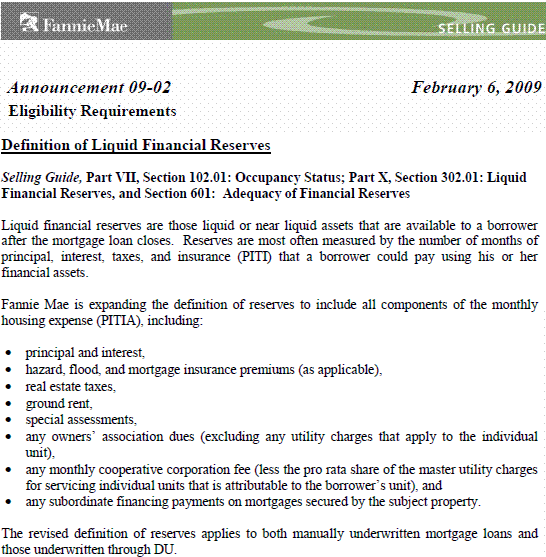
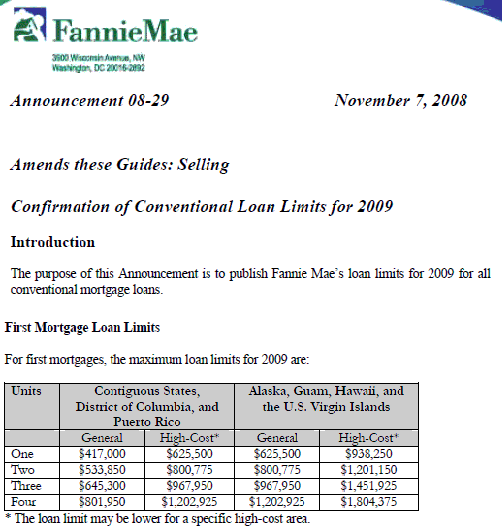
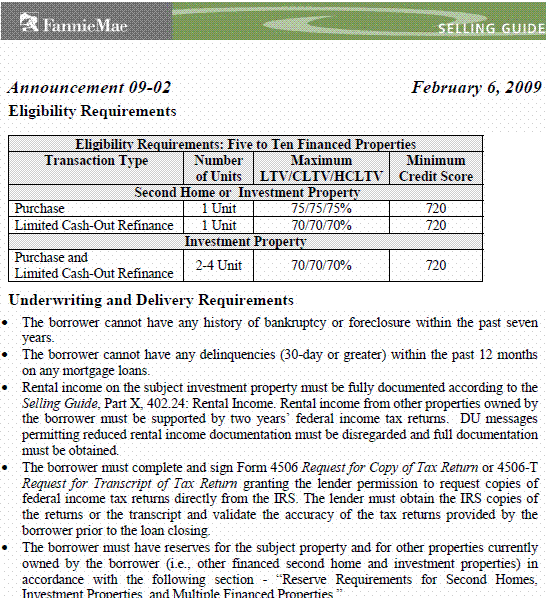
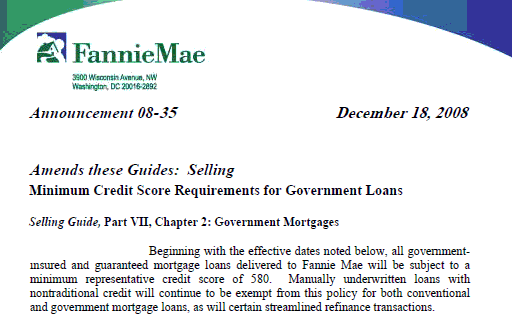
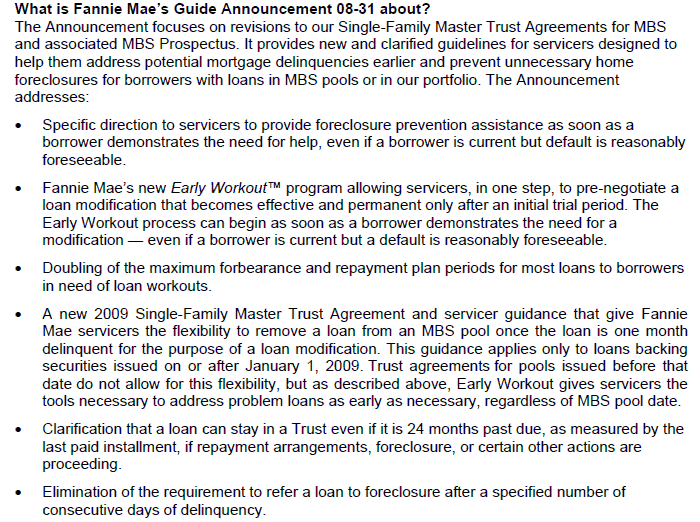
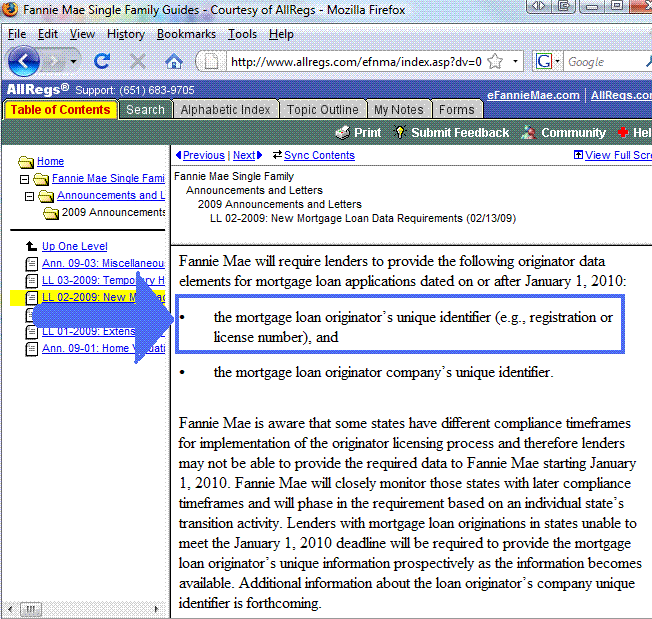
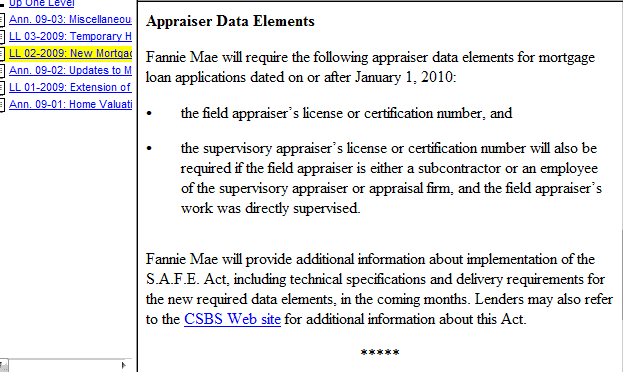
I thoroughly enjoyed Bill Gross's March Investment Outlook. If you would like to read HERE IS A LINK





